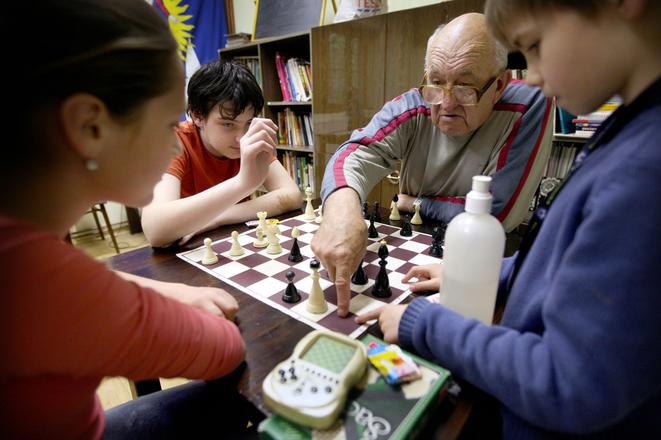“Correctly selected after-school activities help children to develop their talents,” Marta Hanečáková, head of the free time centre in Stará Ľubovňa, told The Slovak Spectator.
Though parents want to offer their children as many possibilities for their self-realisation as possible, some do not think about the consequences, which may result in overburdening the child, warns Dagmar Kopčanová, psychologist of the Research Institute for Child Psychology and Pathopsychology.
“Fortunately, most parents know the interests and hobbies of their children, so they choose the after-school activities based on these preferences,” Kopčanová told The Slovak Spectator.
Benefits for development
Youth who participate in after school programmes can garner academic, social and health benefits, according to the 2008 Harvard Family Research Project report focusing on the potential of activities after school.
Such programmes can, for example, improve academic achievement as they are associated with better attitudes toward school and higher educational aspirations, better school attendance and less tardiness, less disciplinary actions, better performance in school and engagement in learning.
Moreover, they can improve social and developmental outcomes, as participation in them is connected with decreased behavioural problems, improved social and communication skills and better relationships with others, increased self-confidence, as well as lower levels of depression and anxiety and development of initiative, the report suggests.
As for the positive impact on prevention outcomes, students participating in after school programmes more often avoid drug and alcohol use, decrease delinquency and violent behaviour, increase knowledge of safe sex, and reduce juvenile crime.
Additionally, it can also contribute to healthy lifestyles and increased knowledge of nutrition and exercise. After-school programmes can also tackle the growing problem of obesity among children and youth, the report states.
The offer is really wide, as there are various activities directly at schools, in free time centres or personal interest clubs, Hanečáková said.
“There is, however, a question whether the offer is based on the child’s needs or is prepared by parents who think it would be appropriate,” she added.
Selecting activities
It is important to talk with children to find activities they would like, Hanečáková and Kopčanová agree. For example, it is good to learn foreign languages, but if children are more interested in, let’s say, sports, it is better to find an activity they like, Kopčanová added.
From Hanečáková’s observation, especially younger schoolchildren often change activities as they want to try everything. However, it is not good to start with too many activities and then gradually reduce them, Kopčanová claimed.
“Such approach may result in children not spending much time in any activity,” the psychologist explained.
It is also individual how many activities the children can bear. Parents should not compare them with other children or their siblings and make them do the same.
“Every child is individual, unique and thus has a right to follow his or her own way,” Kopčanová said. “A child is not a machine we can programme to run at full throttle.”
In addition to activities after school, they should also have time to relax and regenerate, she added.
Digital impact
Despite the broad offer of after-school activities, an increasing number of children spend their free time behind a computer or TV as “it is simpler and more comfortable”, Hanečáková said.
Despite the negative impacts on children’s health shown by several studies, computers and tablets – when used appropriately – can develop children’s logic, strategic thinking and concentration, according to Kopčanová.
Since we cannot prevent children from sitting behind computers and TVs, we should try to find ways that will help children develop their knowledge and skills in their future lives, Hanečáková added.
“That is the reason why the after school programmes should be interesting, create room for children to meet and talk, and to offer safe space for un-organised activities available to all,” she said.
This article is published as part of Spectator College, a programme created by The Slovak Spectator with the support of Petit Academy Foundation. A glossary of words as well as an exercise related to this article are also published online.



 Correctly selected activities may help children develop their abilities. (source: SME)
Correctly selected activities may help children develop their abilities. (source: SME)